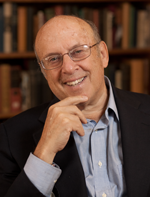
Jeffrey Carduner, Aesthetic Realism consultant, writes:
Is there such a thing as a best way of seeing what we don’t like, what’s confusing and disorderly? And what does true poetry, including the poetry of Stephen Crane, author of The Red Badge of Courage, have to do with honestly making sense of our world? The knowledge that awaits you here will move you profoundly and bring real light to this urgent subject. You’ll have a wonderful time reading “The Greatest Evidence,” the new issue of The Right of Aesthetic Realism to Be Known.
The commentary by Ellen Reiss begins:
Dear Unknown Friends:
We are serializing the magnificent 1973 lecture These Speak of Poetry, by Eli Siegel. And in the section we’ve come to, there is a particular matter that concerns everyone enormously: how shall we see—what shall we feel about, do about—the repellent in this world, the distasteful, the messiness in reality? It is a subject present at every time in history. It is very much present now. And what does poetry have to do with it? I think there’s nothing more thrilling and hopeful than what Aesthetic Realism explains about this subject.
In his lecture, Mr. Siegel is speaking about what differentiates authentic poetry from something which may seem to be that but is not. And in the section we’ve reached he reads a poem of Stephen Crane about the incoherence and non-loveliness of things. And he says it’s a good poem—unlike many others on that subject. What can we learn from the distinction—what do we need desperately to learn from it?
Eli Siegel has described the basis of Aesthetic Realism in this principle: “In reality opposites are one; art shows this.” In every instance of true art, the artist has looked at a subject—looked not for the purpose of impressing but in order to see and feel deeply, accurately, widely what that thing dealt with, that subject, is. This is so whether the subject is a bright daisy or some murky mess. If the desire to see is deep enough and thorough enough, what the artist will get to is the structure of the world: the oneness of such opposites as rest and motion, force and gentleness, complexity and simplicity, immediacy and depth….Read more